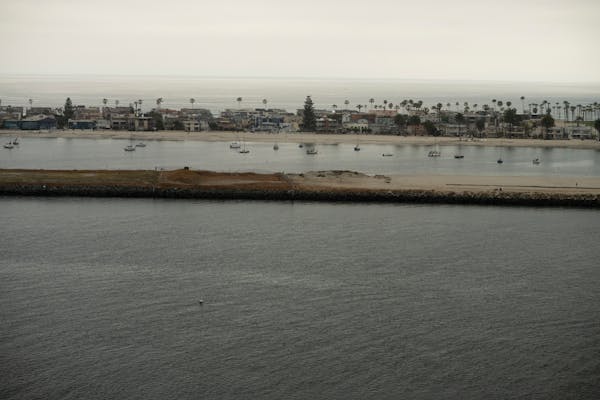Trump-Russia tale began with simple ‘Internet phone book’ search
[ad_1]
WASHINGTON, D.C. — They let their cyber fingers do the walking.
Opposition research that found a since-debunked back channel between Donald Trump and Russia got started with a simple search of the name Trump in the “phone book of the internet.”
The misguided origin of the purported Russia-Trump cyber connection was revealed in a document entered into evidence at the trial of former Hillary Clinton campaign lawyer Michael Sussmann.
The eight-page report, titled “White Paper #1 — Auditable V3,” claims that on July 28, 2016, a search of the global Domain Name System — also known as the “phonebook of the internet” — yielded 1,933 results containing the word “Trump.”
Another search turned up 3,352 domains registered by the Trump Organization, including “trump-email.com,” which was then linked to an email server named “mail1.trump-email.com” that showed “anomalous data,” according to the document.

The white paper further asserted that between May 4 and Sept. 4, 2016, the majority of online lookups for mail1.trump-email.com came from IP addresses registered or linked to Russia’s Alfa-Bank, including an “unusually configured server” run by the Spectrum Health system in Grand Rapids, Michigan.
“The only plausible explanation for this server configuration is that it shows the Trump Organization and Alfa Bank to be using multiple layers of protection in order to obfuscate their considerable recent email traffic,” according to the report’s “findings.”
Sussmann, 57, is charged with lying to the government by denying that he wasn’t “acting on behalf of any client” when he gave White Paper #1 and other material to then-FBI general counsel James Baker on Sept. 19, 2016, according to an indictment obtained last year by special counsel John Durham.

During opening statements in DC federal court Tuesday, prosecutor Deborah Brittain Shaw accused Sussmann of engaging in “a plan to create an October surprise on the eve of the presidential election.”
Shaw also told jurors that an FBI investigation of the material Sussmann gave Baker found it merely involved a “spam email server” used for marketing purposes.
FBI agent Scott Hellmann testified Monday that he disagreed with the conclusions in White Paper #1, saying they “were not supported by the technical data.”

Hellman was also questioned by the defense about an electronic message in which he told an FBI colleague that the report “feels a little 51-50ish,” using a slang term that refers to mental illness.
“I thought perhaps the person who drafted this document was suffering from a mental disability,” Hellman said.
Who’s who in the case
- Michael Sussmann: Cybersecurity lawyer who worked for Hillary Clinton’s 2016 campaign; charged with lying to the FBI
- Rodney Joffee: Former tech executive and Sussmann client who told him about a purported cyber back channel between the Trump Organization and Russia’s Alfa-Bank
- Christopher Steele: British ex-spy hired by Fusion GPS; compiled the infamous “Steele dossier” of reports on Trump and Russia
- John Durham: Special counsel investigating potential criminality in the government investigations of former President Donald Trump’s purported ties to Russia
- James A. Baker: Former FBI general counsel; received Alfa-Bank information from Sussmann
- Marc Elias: Clinton campaign general counsel, former partner of Sussmann’s at Perkins Coie law firm
- Judge Christopher Cooper: Presiding over Sussman’s trial in Washington, DC, federal court
- Peter Fritsch and Glenn Simpson: Former Wall Street Journal reporters who co-founded the Fusion GPS research company; worked for Clinton’s campaign
- Andrew McCabe: Former FBI deputy director; allegedly contradicted the basis for the charge against Sussmann during a 2017 briefing
It’s unclear from the exhibit who wrote White Paper #1, but the underlying data was “assembled” by April Lorenzen, a data scientist and founder of the ZETAlytics company based in Rhode Island, according to court papers.
Lorenzen, a registered Democrat, last week declined to comment through a woman who identified herself as her spouse when The Post visited their home in North Kingstown, Rhode Island.
“She will not talk to you. Do not waste your time or breath,” the woman said.

The woman also used a cellphone to take a picture of a Post photographer after emerging from the house to smoke a cigarette.
Last year, Lorenzen’s lawyer told the New York Times that she’s “dedicated her life to the critical work of thwarting dangerous cyberattacks on our country.”
“Any suggestion that she engaged in wrongdoing is unequivocally false,” lawyer Michael J. Connolly added.
[ad_2]
Source link






